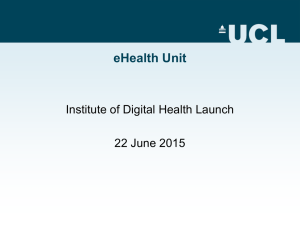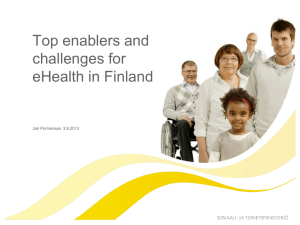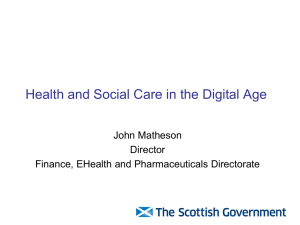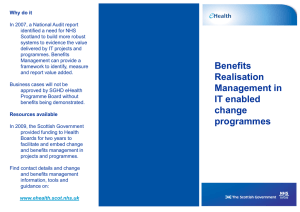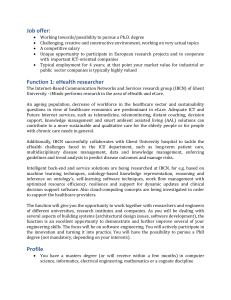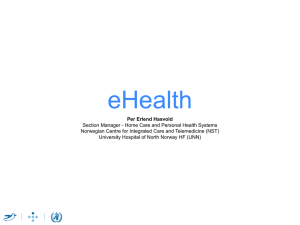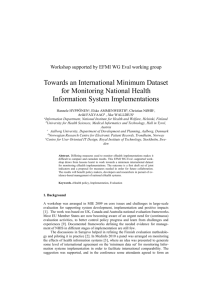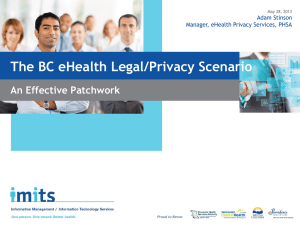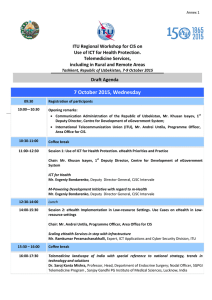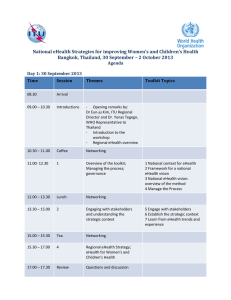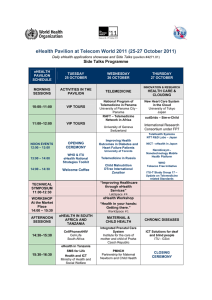The education of future health professionals: How competent will they be in eHealth? IX PAN AMERICAN CONFERENCE ON PHARMACEUTICAL EDUCATION
advertisement
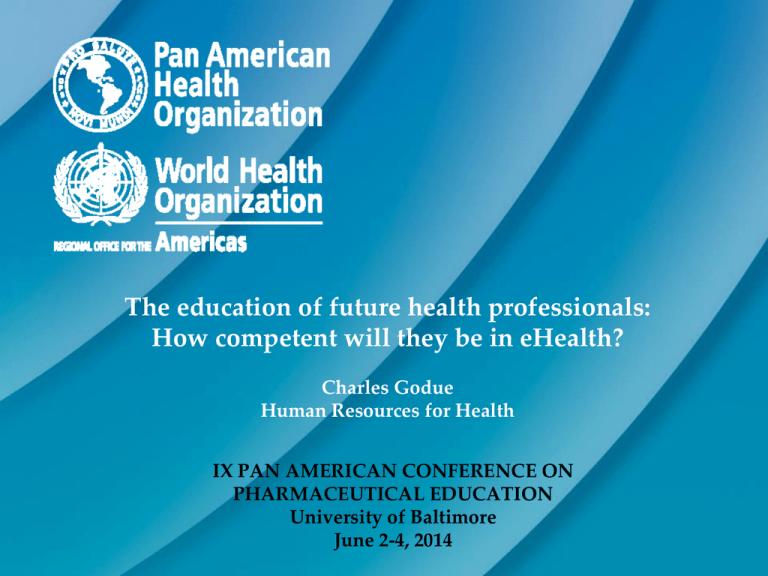
The education of future health professionals: How competent will they be in eHealth? Charles Godue Human Resources for Health IX PAN AMERICAN CONFERENCE ON PHARMACEUTICAL EDUCATION University of Baltimore June 2‐4, 2014 The transformation of health sciences education Growing debate in the international community on necessary changes in the education of health professionals o The Lancet Commission: Health Professionals for the XXI Century o WHO: Transformative Scale up of Health Professional Education o PMAC 2014: Transformative Learning of Health Equity o The movement for the Social Mission of Health Sciences Education o PAHO: Transformation of education in health sciences for health systems based on primary health care / UHC 1 Title of the Presentation A common recommendation is the intensified use of information and communication technologies The transformation of health sciences education Advances in eHealth and information and communication technologies (ICTs) offer unprecedented opportunities to improve public health They can improve access, quality, productivity and efficiency of health care, and the performance of health systems They can contribute to self care and support social support networks of patients • • • 2 Title of the Presentation The baseline: ICTs will transform health care practice Are our future health professionals being prepared to use these technologies? Collaborative Initiative • A collaboration between the Pan American Health Organization and the University of British Colombia Faculty of Medicine eHealth Strategy Office (UBC eHSO) • Aims to engage academic institutions to prepare future health professionals with eHealth and ITCs competencies to strengthen PHC collaborative team practice and improve quality of care at the community level 3 Title of the Presentation The road map 1. A short survey to deans of schools of medicine, nursing and pharmacy of the Americas to explore relative importance, current developments, barriers and future plans to train students in eHealth and ITCs 2. An online dialogue with interested institutions to discuss the development of ITCs competencies and identify innovative programs 3. A regional workshop with most innovative programs to exchange experiences and discuss options for faculty development 4. An interdisciplinary online course and education resources for faculty development through PAHO’s Virtual Campus of Public Health 4 Title of the Presentation Survey pre‐test Distributed to: 5 schools of pharmacy – 4 responses 6 schools of nursing – 5 responses 9 schools of medicine – 3 responses 7 professionals identified by UBC Pharmacy School respondents Belize – University of Belize Colombia – National University of Colombia Costa Rica – University of Costa Rica Peru – Universidad Privada Antonio Guillermo Urrelo 5 Title of the Presentation Preliminary findings Schools ranked as “very important” the students ability to use: •digital technologies to provide and coordinate health services •telemedicine networks and tools to improve the quality of care •Digital learning resources & access information as a life‐long learning strategy Incorporating eHealth into the curriculum: •One schools (private) has adopted an eHealth plan into curriculum •Professors are promoting the idea – 3 of the 4 schools Main barriers: o Lack of funding o Lack of equipment o Lack of faculty teaching competencies on eHealth Future: 3 of the 4 Schools are interested in collaborating with PAHO/UBC on eHealth competency capacity building 6 Title of the Presentation
